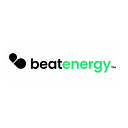The Return on Investment (ROI) of Commercial Solar Panels
As businesses look for ways to reduce operational costs and improve their sustainability, many are turning to commercial solar panels. But before making the switch, it’s crucial to understand the return on investment (ROI) of these systems. This article will break down the key aspects of ROI for commercial solar panels, helping you make an informed decision.
Understanding Commercial Solar Panels
Commercial solar panels are designed to meet the energy needs of businesses, large and small. These panels convert sunlight into electricity, which can be used to power your operations. Unlike residential systems, commercial solar panels are typically larger and more powerful, capable of generating significant amounts of energy.
Why ROI Matters
ROI quantifies how much profit an investment generates. For commercial solar systems, it indicates how much money a business can expect to save compared to the initial investment. A higher ROI means better financial benefits. Here’s why calculating ROI is essential:
- Cost Savings: One of the primary reasons for investing in commercial solar panels is to save on energy costs. Solar energy can greatly lower or even eliminate your electricity bills, depending on the size of your system and your energy usage. By calculating ROI, you can estimate how quickly these savings will offset the initial costs of installation.
- Increased Property Value: Solar panels can also increase the value of your property. Potential buyers or tenants may see the presence of a solar system as a valuable asset, which can enhance your property’s marketability and overall value.
- Tax Benefits and Incentives: Many governments offer incentives for businesses that install solar panels. These can include tax credits, rebates, and grants, which can lower the upfront costs and improve ROI. Understanding these incentives is crucial for a complete ROI calculation.
The Cost of Commercial Solar Systems
Before diving into ROI, it’s important to understand the costs involved in installing a commercial solar system:
- Initial Investment: This includes the cost of purchasing the solar panels, inverters, mounting systems, and installation. Prices can vary depending on the size of the system and the quality of the components.
- Maintenance Costs: While solar panels generally require minimal maintenance, occasional inspections and cleaning are necessary to ensure optimal performance. These costs should be factored into your ROI calculation.
- Financing Options: Many businesses choose to finance their solar systems through loans or leases. Understanding your financing terms is important for accurately assessing ROI.
Calculating ROI
To determine ROI for commercial solar panels:
- Determine Installation Costs: Calculate the total cost of your solar system, including panels, inverters, mounting, and installation. Don’t forget to include any ongoing maintenance costs.
- Estimate Energy Savings: Review your current energy bills to estimate how much you’ll save with solar panels. This involves calculating the electricity your system will generate and the reduction in your energy costs.
- Factor in Incentives: Include any applicable government incentives or tax benefits in your ROI calculation. These can reduce your initial costs and enhance ROI.
- Calculate Payback Period: The payback period is the time it takes to recover your investment through savings. Divide the total cost of the system by the annual savings to determine how long it will take to break even.
- Evaluate Long-Term Benefits: Consider the long-term savings, as solar panels typically last 25–30 years. The benefits extend well beyond the payback period, offering continued savings and stability.
Assessing the Value of Commercial Solar Panels
Is Commercial Solar Worth the Investment? If you’re questioning whether commercial solar panels are worth the investment, consider that the long-term benefits often outweigh the initial costs. Solar energy offers a reliable and cost-effective power source, protecting you from fluctuating electricity prices. Additionally, adopting renewable energy supports sustainability goals, aligning with many businesses’ values and long-term objectives.
Conclusion
Investing in commercial solar panels can be a wise financial move for many businesses. By understanding ROI and assessing the costs, savings, and benefits, you can decide if commercial solar solutions are right for you. With the right system, you can enjoy substantial savings, enhance property value, and contribute to a greener future.
